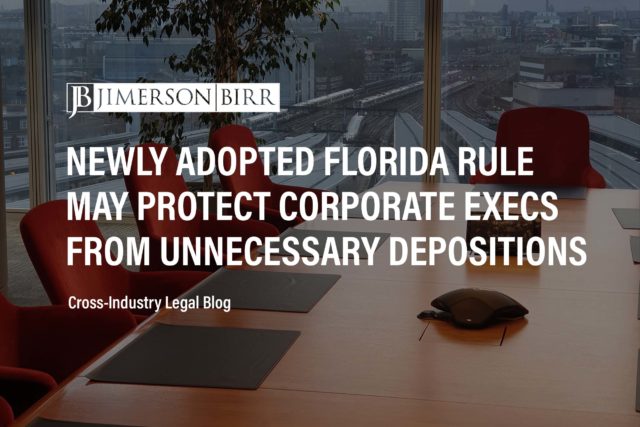How do faculty disputes affect schools?
Faculty disputes can have far-reaching effects on schools, impacting various aspects of academic life and institutional functioning. One significant consequence is the disruption of the learning environment. When faculty members are embroiled in disputes, it can create tension and conflict within the academic community, affecting student-teacher relationships and overall morale. This discord may manifest in decreased student engagement, compromised educational quality, and an erosion of trust in the institution’s leadership.
Furthermore, faculty disputes can harm a school’s reputation. News of internal conflicts can tarnish the institution’s image, potentially deterring prospective students, faculty recruits, and donors. This negative publicity may also affect rankings and accreditation status, leading to long-term consequences for the school’s standing in the academic community.
Moreover, faculty disputes can impede collaboration and hinder productivity. When faculty members are at odds with one another or with the administration, it can disrupt collaborative research efforts, curriculum development, and administrative decision-making processes. This fragmentation can stifle innovation, limit interdisciplinary initiatives, and hinder the school’s ability to adapt to changing educational needs and market demands.
Need help regarding faculty disputes? Schedule your consultation today with a top education attorney.
In Florida, which laws and regulations apply to faculty disputes?
In Florida, faculty disputes is governed by several laws and regulations. Some of the key statutes and regulations relevant to schools in Florida include:
- Florida Educational Equity Act: This law prohibits discrimination on the basis of race, ethnicity, national origin, gender, disability, marital status, or age in educational institutions, including employment practices. Faculty disputes involving allegations of discrimination or harassment may be addressed under the provisions of this act..
- Florida Public Employees Relations Act (PERA): PERA outlines the rights and responsibilities of public employees, including faculty members at public universities and colleges, regarding collective bargaining, grievances, and other labor-related matters. Faculty unions and bargaining units may operate under the guidelines established by PERA.
What are common issues regarding faculty disputes that lead to litigation?
Faculty disputes that escalate to litigation often involve a range of complex issues, some of which are common across different educational institutions. Here are several common issues that frequently lead to faculty disputes and subsequent legal action:
- Tenure and Promotion Denials: Allegations of unfair denial of tenure or promotion are frequent grounds for faculty disputes. Faculty members may claim that the evaluation process was biased, arbitrary, or improperly conducted, leading to a violation of their academic freedom or contractual rights.
- Discrimination and Harassment: Faculty disputes may arise from allegations of discrimination or harassment based on protected characteristics such as race, gender, ethnicity, religion, age, disability, or sexual orientation. These disputes often involve claims of hostile work environment, retaliation, unequal treatment, or failure to accommodate.
- Contractual Disputes: Issues related to employment contracts, faculty handbooks, collective bargaining agreements, or university policies can lead to disputes. These may include disagreements over salary, benefits, workload, academic freedom, intellectual property rights, or terms of employment.
- Dismissal and Termination: Disputes may arise when faculty members face disciplinary action, non-renewal of contracts, or termination for alleged misconduct, incompetence, or violation of institutional policies. Challenges to dismissal decisions may involve procedural fairness, due process rights, or contractual obligations.
- Workplace Relationships and Conflict: Interpersonal conflicts among faculty members, administrators, or staff members can lead to grievances and litigation. These disputes may involve allegations of bullying, defamation, sabotage, or interference with professional relationships.
- Academic Freedom and Free Speech: Disputes may arise when faculty members’ exercise of academic freedom or free speech rights comes into conflict with institutional interests, policies, or public perceptions. These disputes may involve controversial research, classroom content, public statements, or political activism.
- Faculty Governance and Shared Governance: Disputes may occur over faculty involvement in institutional decision-making processes, academic governance structures, or administrative policies. Faculty members may challenge decisions that they perceive as undermining their role in shaping academic policies and practices.
- Student Complaints and Academic Freedom: Disputes may arise from student complaints against faculty members for alleged misconduct, unfair grading, or violations of academic standards. Faculty members may argue that disciplinary actions or sanctions against them infringe upon their academic freedom or professional autonomy.
To determine whether your unique situation may necessitate litigation, please contact our office to set up your initial consultation.
What steps should schools take to minimize the risk of litigation over faculty disputes?
Minimizing the risk of litigation over faculty disputes requires proactive measures aimed at fostering a supportive and fair academic environment while ensuring compliance with legal and regulatory requirements. Here are several steps schools can take to minimize this risk:
- Clear Policies and Procedures: Establish comprehensive policies and procedures governing faculty conduct, evaluation, promotion, tenure, grievance resolution, and disciplinary actions. Ensure that these policies are clearly communicated to faculty members and consistently applied.
- Training and Education: Provide training and education for faculty members, administrators, and staff on issues such as diversity, equity, inclusion, harassment prevention, conflict resolution, and compliance with relevant laws and regulations. Promote awareness of rights, responsibilities, and ethical standards within the academic community.
- Fair and Transparent Evaluation Processes: Implement fair and transparent processes for faculty evaluation, tenure review, promotion decisions, and performance assessment. Ensure that evaluation criteria are clearly defined, consistently applied, and based on merit, scholarship, teaching effectiveness, and service contributions.
- Conflict Resolution Mechanisms: Establish effective conflict resolution mechanisms, such as mediation, arbitration, or ombuds services, to address disputes in a timely and impartial manner. Encourage open communication, constructive dialogue, and collaborative problem-solving to resolve conflicts at the earliest stage possible.
- Compliance with Legal Requirements: Ensure compliance with applicable federal, state, and local laws, as well as institutional policies, regarding equal employment opportunity, non-discrimination, harassment prevention, tenure rights, academic freedom, and other legal obligations. Regularly review and update policies to reflect changes in the legal landscape.
- Documentation and Record-Keeping: Maintain accurate and detailed records of faculty evaluations, performance reviews, disciplinary actions, grievances, and other relevant documents. Document all steps taken in the resolution of disputes to demonstrate procedural fairness, accountability, and compliance with policies and regulations.
- Risk Assessment and Mitigation: Conduct regular risk assessments to identify potential areas of conflict, legal exposure, or compliance risks related to faculty disputes. Implement proactive measures to mitigate risks, address underlying issues, and prevent disputes from escalating into litigation.
- Crisis Management and Communication: Develop a crisis management plan to respond effectively to faculty disputes, allegations of misconduct, or other contentious situations. Establish clear lines of communication, designate spokespersons, and coordinate with legal counsel to manage reputational risks and mitigate adverse publicity.
Frequently Asked Questions
What role does academic freedom play in faculty disputes?
Academic freedom is a fundamental principle that protects faculty members’ rights to pursue scholarly inquiry, research, teaching, and public engagement without interference or censorship. Faculty disputes may involve allegations of violations of academic freedom, such as censorship, retaliation for controversial research or speech, or restrictions on curriculum content.
How can institutions prevent faculty disputes from arising?
Institutions can prevent faculty disputes from escalating by promoting transparent communication, fair and consistent policies, effective conflict resolution mechanisms, training on diversity and inclusion, and proactive measures to address underlying issues such as discrimination, harassment, or unequal treatment.
What rights do faculty members have in disputes?
Faculty members typically have rights guaranteed by institutional policies, contractual agreements, academic freedom principles, and relevant laws and regulations. These rights may include due process protections, freedom of speech, equal employment opportunities, tenure rights, and access to grievance procedures.
Have more questions about a faculty disputes-related situation?
Crucially, this overview of faculty disputes does not begin to cover all the laws implicated by this issue or the factors that may compel the application of such laws. Every case is unique, and the laws can produce different outcomes depending on the individual circumstances.
Jimerson Birr attorneys guide our clients to help make informed decisions while ensuring their rights are respected and protected. Our lawyers are highly trained and experienced in the nuances of the law, so they can accurately interpret statutes and case law and holistically prepare individuals or companies for their legal endeavors. Through this intense personal investment and advocacy, our lawyers will help resolve the issue’s complicated legal problems efficiently and effectively.
Having a Jimerson Birr attorney on your side means securing a team of seasoned, multi-dimensional, cross-functional legal professionals. Whether it is a transaction, an operational issue, a regulatory challenge, or a contested legal predicament that may require court intervention, we remain tireless advocates at every step. Being a value-added law firm means putting the client at the forefront of everything we do. We use our experience to help our clients navigate even the most complex problems and come out the other side triumphant.
If you want to understand your case, the merits of your claim or defense, potential monetary awards, or the amount of exposure you face, you should speak with a qualified Jimerson Birr lawyer. Our experienced team of attorneys is here to help. Call Jimerson Birr at (904) 389-0050 or use the contact form to schedule a consultation.

We live by our 7 Superior Service Commitments
- Conferring Client-Defined Value
- Efficient and Cost-Effective
- Accessibility
- Delivering an Experience While Delivering Results
- Meaningful and Enduring Partnership
- Exceptional Communication Based Upon Listening
- Accountability to Goals











